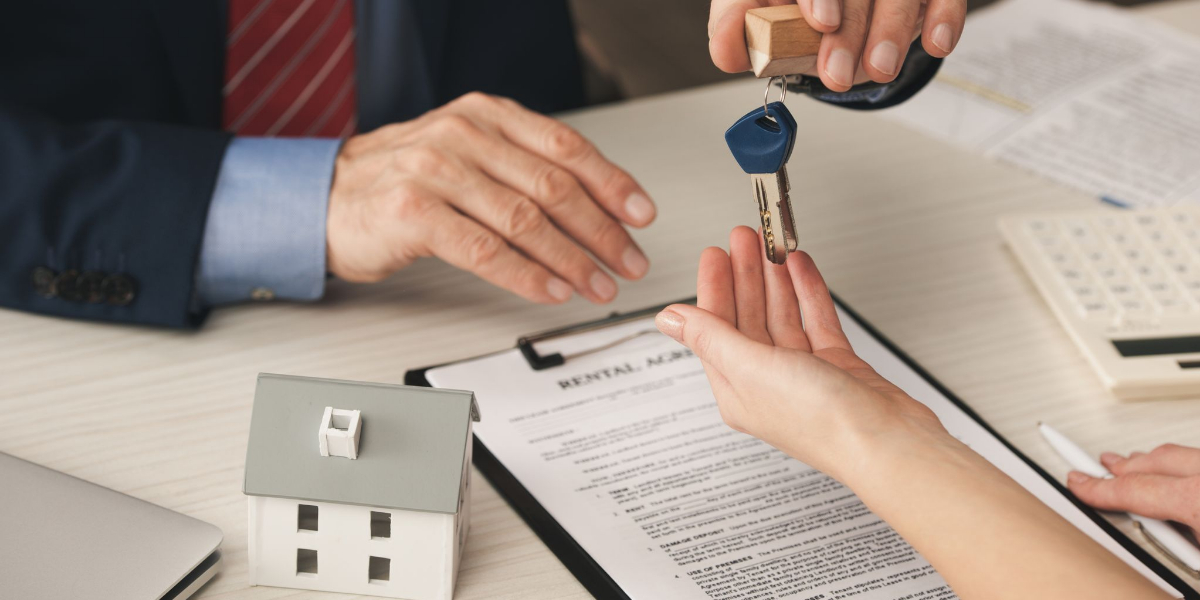Buying rental property is an exciting step because it means you’re moving toward establishing passive income. However, there is much prospective rental property owners should know before buying an investment property.
You’ll need a down payment and possibly mortgage insurance. The fact that it’s an investment property rather than a primary residence will also make a big difference in what you need to complete the transaction.
Additionally, there are many things to keep in mind if you want to own profitable rental property. Real estate investors must know everything from the property value, the area’s average rent, how to attract renters, what renovation costs will look like if necessary, and more.
As a result, a landlord requires a property manager to ensure that they secure the best tenants for their income property. Property managers also handle every aspect of managing rental properties, but before you buy anything, you’ll need to do some research.
However, the real estate market is complex, especially when it comes to buying an investment property. With all these moving parts, you’ll want a property management company to help you make a wise investment when investing in real estate.
Things to Consider Before Buying an Investment Property
There are many factors to consider when buying an investment property. For example, you will have to think about the housing market and whether there are growing employment opportunities in the area you are considering.
Additionally, you will have to look at all factors associated with financing, like higher interest rates, property taxes, and the many expenses associated with owning investment properties. Everything will vary depending on your situation, how large of a down payment you can put down, and more.
Here are some other things to consider before buying an investment property.
Is a real estate investment the right fit for you?
First, you should think about whether owning investment properties makes sense for your financial situation. After all, it’s one thing to own a primary residence and something else entirely to invest in real estate.
Making financial decisions can be difficult, so you should consider multiple kinds of investments. After all, some financial products will pay off while others make take a hit from the current market environment.
As a result, diversification is an important part of investing. It might also make sense to own different kinds of properties so that you diversify your real estate portfolio as well if you decide to buy investment rental property.
Financial Situation
Of course, you don’t want to land in financial trouble with whatever decision you decide to make. Many investors will need an investment property loan from a financial institution.
If possible, a larger down payment could be a good idea, but if it causes cash flow issues, you might want to reconsider that. There are other financial matters to consider as well, like maintenance costs, property taxes, and the amount of rental income you can expect.
Property Management
Landlords can generally maximize the rental income from their properties by hiring a property management company.
Location
Property managers can also help investors choose investment properties in an attractive location that is close to public transportation, a public library, shopping, various services, or anything else that makes a neighbourhood attractive to tenants.
Calculate Your Margins
When thinking about buying an investment property, you should consider more than just the fact that you can generate income. High or low property taxes should be factored in, as should insurance, mortgage payments, and other expenses that will impact your rental income, margins and cash flow.
Qualities of The Best Properties for Investment
Location is one of the most important factors when it comes to purchasing an investment property. However, you will also want to consider other issues, like the many costs associated with owning real estate that isn’t your primary home, dealing with mortgage lenders, paying for insurance and taxes, and keeping enough cash on hand to pay other expenses.
Neighbourhood
The state of the neighbourhood will make a huge difference when you try to attract tenants. Renters in search of housing want to be close to important services and shopping. They also want to feel safe, so the local police presence can also make a difference for your rental property.
Future Developments
Real estate investors who seem to foresee the future will do well in selecting investment properties. Any investment property that’s in an area that’s in the process of development could be a wise choice.
You can check with your municipal planning department for information on future developments for any property you might purchase.
Property History
The history of the property is also important and easily discovered with a little bit of research using official sources. Tenants may be less inclined to move into a property where major crimes have occurred, even if the neighbourhood is otherwise pleasant.
Vacancies
Before you purchase a property, it’s also important to know how often it has sat vacant over the years. After all, you will only see income on your investment if someone is living in it and paying rent, so you don’t want to purchase property that sits empty frequently.
However, in some cases, you may find opportunities in property that has remained vacant for extended periods if you can figure out what the problem is and whether it can be fixed. If the problem is fixable, you might be able to get a deal on the property because units that are in move-in condition are generally higher in price.
Average Rents
When you buy an investment property, one of the first things you might be thinking about is collecting rent every month. You will need to ensure that the monthly rent payment will cover any mortgage or financing payments, property taxes, or other costs associated with owning the property.
Job Market
The job market will also have an impact on your investment property. If the market is strong, the tenants will be able and willing to pay higher rent. On the other hand, if people are struggling financially, they will have difficulty paying all their expenses, so it will be difficult to charge increased rent.
Types of Properties

If you have decided that owning an investment property is right for you, then you will have plenty of options to choose from. You could start with a fixer-upper and make improvements to make it attractive to renters, or you could buy something that’s in move-in condition.
You will also have to decide whether single-family or multi-family properties or commercial property is right for your portfolio.
Single-Family Residential Properties
Single-family homes can make excellent investment properties. If you need to get a mortgage on your first house, you can gradually build up your portfolio over time to own multiple rental houses.
Multi-Family Residential Properties
Some investors find that the ideal investment property for them is a multi-family building. Property with multiple units to rent out can be very profitable for investors who know how to maximize their money.
In fact, investors who need financing on their investment property may find that it’s easier to start with a multi-unit property because they’re only making payments on one building while receiving payments on multiple units.
Commercial Investment Properties
On the other hand, some investors discover that commercial units fit their portfolios better. Commercial tenants have different needs than residential tenants, so some investors find that they are better equipped to serve commercial units instead.
Final Thoughts
Purchasing investment property can be very exciting, but you have to know what you’re looking for and what type of property would fit well in your portfolio.
An experienced Toronto property management company will help you figure out what types of investment property will be right for you and provide all the services you need to help you manage the units. They will also help you identify properties that will fit well in your portfolio and make wise investments.
Of course, owning an investment property is also like running a business, which means you need to include all possible expenses when determining how much money you might be able to make on each unit you own. You will also need to buy landlord insurance rather than homeowners’ insurance and pay for any improvements the property might need.
With a little bit of time and effort, you will likely find that owning an investment property is an excellent way to make money and build a legacy for your family.

